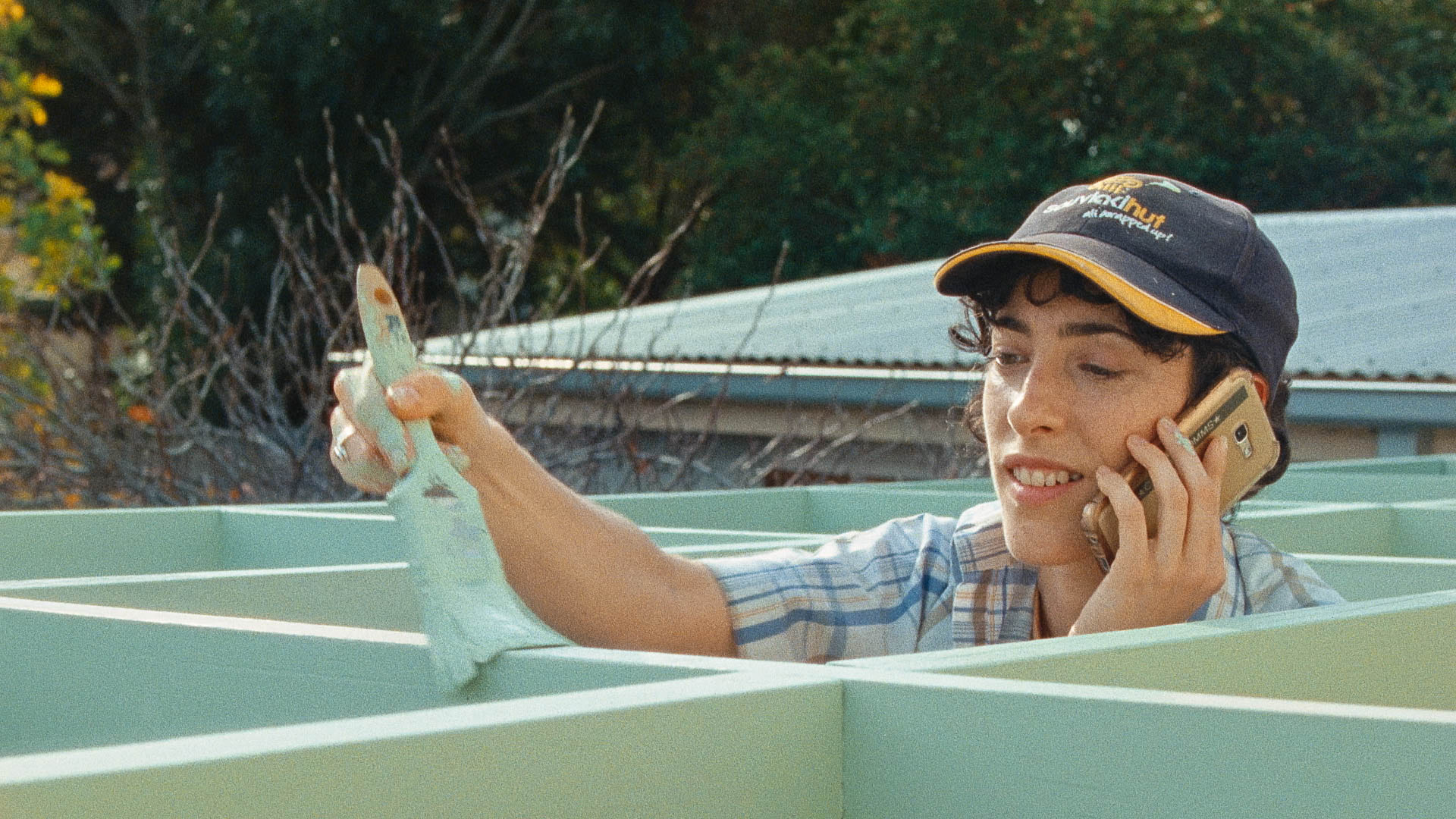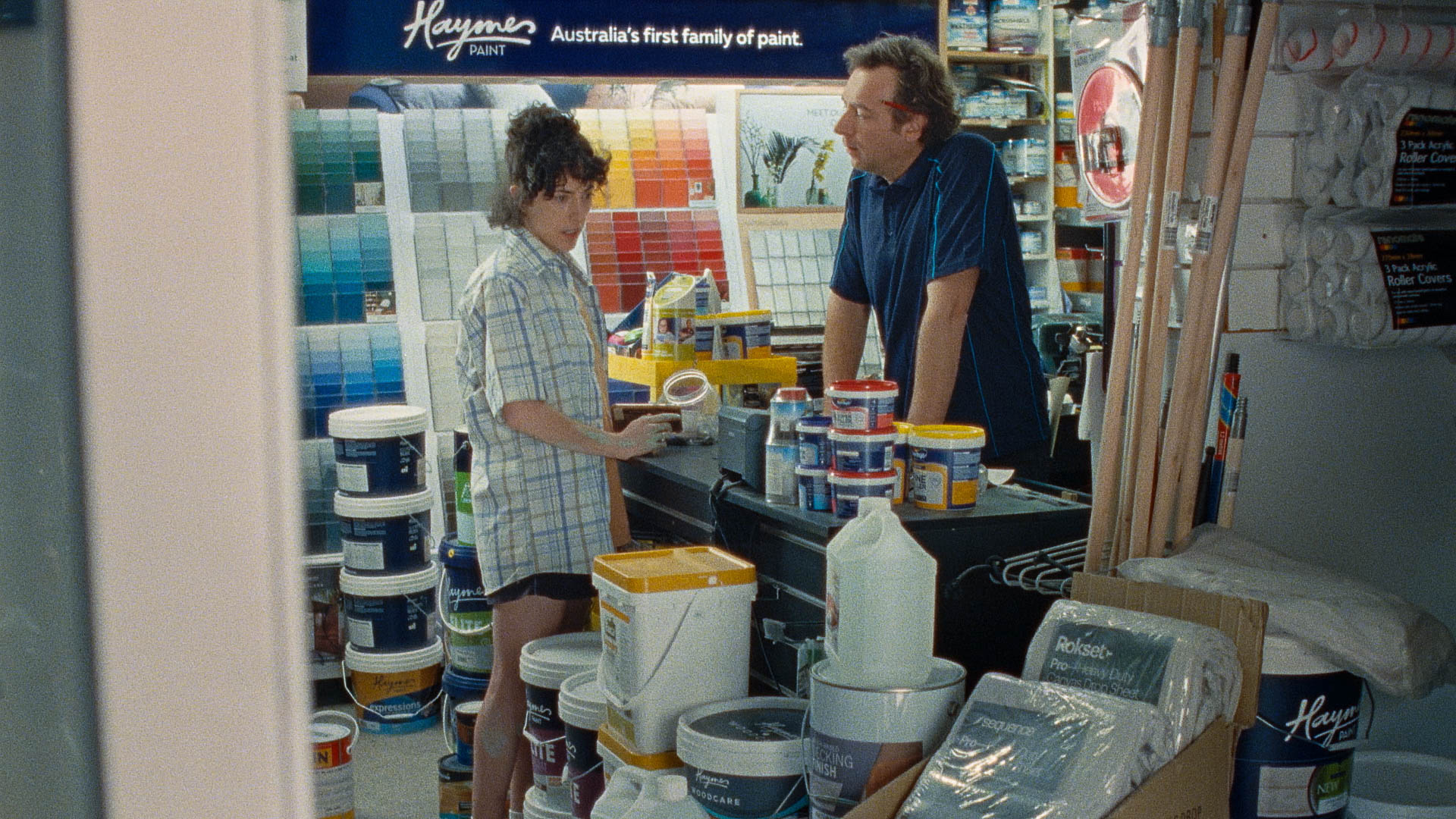Between Silly and Sincere: An Interview with Pat Mooney

Critics Campus 2022 participant Isabelle Carney speaks to Lime Parfait director Pat Mooney about intent, nostalgia and the ethics of the fib.
Pat Mooney thinks it’s okay to lie – at least when it comes from a place of love. This line of reasoning applies in his new short film Lime Parfait, which screens at MIFF 70 as part of the Accelerator Shorts program. Co-written by and starring Hannah Camilleri, the film shows Dani (Camilleri) as she paints her grandmother’s pergola in preparation for the house to be auctioned. When her nanna, Claudette (Frida Cauchi), objects to the colour used, Dani – the seemingly reluctant go-between of the family – must assuage the mounting tension by whatever means possible so she can fit in a swim before nightfall. A lie might have legs if it gets you to the beach.
A graduate of Swinburne University’s film course, Mooney has a neat repertoire of work. He co-directed the City of Melbourne grant-funded web series Little Shits (also starring Camilleri) and has made some comedic shorts (including Jeanette Is the Dog, MIFF 2021) as well as a particularly campy, off-kilter music video for his band Curves.
Yes, he is in a band. (A boy band, perhaps?) Yes, he has wire-frame glasses. And, yes, he displays a fervent adoration for a particular turn-of-the-21st-century Australian screen aesthetic (think: The Secret Life of Us and Death in Brunswick). When listed in sequence, these elements of Mooney’s persona might lead one to think of him as an ‘edgy’, I-take-myself-seriously film bro. In reality, Mooney is modest, mellow and, really, quite funny.
A jack-of-all-trades risks mastering none, but this is not true in the case of his filmmaking, wherein Melbourne is a crucial part. “At one point, I just wanted to make films in the city, as a ‘forever’ kind of thing. Because I felt like I never saw the city in films or TV, apart from cop shows,” he says, noting his filmic influences: the works of Elaine May, John Cassavetes and Robert Altman (“although he was a bit of a prick”). “It’s those 70s films where it’s so much about the location and these characters moving through that place,” he says. “Place itself is such a character, even though that’s kind of a cliché.”
Mooney’s films have a romantic, pastoral quality about them. Lime Parfait ambles gently through Melbourne’s western suburbs, a sun-kissed capsule of a soothing suburban milieu. “When I watch [the films of the 70s], in terms of the location, you want to be there,” he says. “That was always the challenge for me – the idea of making Melbourne look really appealing, to be evocative of the era when people would shoot in the city … when it was something you saw onscreen as well as when you walked outside.”

Lime Parfait
What Mooney tries to capture is a sense of home, one varnished with emotional dilemmas and the awkwardness inherent in navigating complicated familial situations. In the case of Lime Parfait, Dani’s grandmother is forgetting things – an uncomfortable circumstance that formed the launchpad for the film. “I was thinking of my nan when she was on her way out of life. She was in a nursing home and was pretty angry about it. That anger followed her around, even though she was a great person.” He humanises Cauchi’s character with a similar sensibility. “She’s very apprehensive about ageing. She’s attached to her memories, and it makes her difficult, but that’s not her fault,” he says. “When memories fail people, it’s sad.” According to Mooney, this is where the lies are justified.
“It’s interesting to me how something can be selfish at the same time as caring, and the grey area of those two conflicting things.” A lie is sometimes the best remedy for this condition, like a fib about the right paint colour for your nan’s pergola. From a convenience standpoint, it’s also easier. The wrath of a European grandparent is always best avoided.
Certainly, the title of Lime Parfait has an Australian ring to it, one that recalls the charming peculiarity of retro dinner-party dishes (like Bombe Alaska, or a jellied salad that also has ham) and the curious allure of old-school hardware stores. There’s safety in the nostalgia of these places: where the Dulux paint swatches are decoration enough and where your face won’t be memorised by an AI surveillance system upon entry. Mooney replicates the blissful simplicity of a period past, a time before the Bunnings algorithm knew all our names.
Short films don’t have to be solemn to have meaning. They can be gentle and sunny and textured with gags, soft little nods to a time or a place that remind us of how things used to be. This is the sort of stuff Mooney makes. It’s an art he wants to hone. “I’d like to make things with a more throwaway attitude, to put stuff out there and see where it lands.”
He clarifies: “I do have a feature I’m working on, but I love shorts and I’d make shorts for the rest of my life if I could.” It’s a casually radical notion in an industry that ranks feature-length projects above all else. Then again, perhaps his ambitions are larger, and he’s underplaying them for the sake of humility. Perhaps we’ve just fallen for another of Mooney’s gentle, generous, little white lies.